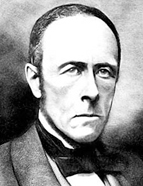

Alexandre Herculano played a major role in the intellectual, artistic, and political fields. He authored a remarkable collection of history texts, as well as poems, short stories, plays, novels and political essays. Besides being a writer and historian, he was also an archivist, a journalist, the editor of documents and a farmer. In politics he was a member of parliament, and later President of the Council of Ministers for a short period of time, but his main influence was felt as a historian, polemicist, and ideologist. He was renowned as a liberal public intellectual who pioneered the application of romantic historical fiction to the Portuguese national past, becoming a hallmark both in the 19th-century history of political thinking and literature in Portugal. Herculano has likewise featured and still does nowadays – sometimes in an exaggerated, blurred but highly significant manner nonetheless - as the founding father of the “scientific” method of researching and writing history in Portugal.
It may therefore be said that from the mid-1840s onwards, Herculano became a kind of celebrity who was widely known and acknowledged in the Portuguese-speaking world. “Even ships were named after him” – evangelical theologian Rudolf Baxmann wrote in 1863, upon his return from a missionary journey to Lisbon (“Ueber den gegenwärtigen Stand”, 115-116). “In Portugal, there was a man who was listened to as if he were an oracle”– acknowledged Teófilo Braga in 1880 (História do Romantismo em Portugal, 219-220 [History of Romanticism in Portugal]). It would be quite easy to make a list of similar statements. Suffice to say that the postmortem significance attributed to the persona of Herculano clearly shows that he was raised to the category of those who are glorified in the Portuguese memory and culture (on this general theme, see Lilti, A invenção da celebridade [The invention of celebrity], 13-17; 145-165). Conclusive proof of this is the transfer of his remains to an impressive tomb in Mosteiro dos Jerónimos [Monastery of Jerónimos] in 1888, the same monastery that houses the tombs of 16th-century monarchs, as well as those of Vasco da Gama, Luís de Camões and Fernando Pessoa.
Alexandre Herculano has become known by his two forenames while his surnames “de Carvalho e Araújo” are usually omitted. This may be linked to his rather modest, petty-bourgeois family origins, although marked by some degree of cultural literacy and upward social mobility. On his mother’s side, his ancestors were in the business of civil construction, since his great-grandfather had worked as a foreman in the construction of the Palace and of the Convento de Mafra [Mafra Convent]. In turn, Herculano’s father, the son of a grain trader, had been a civil servant acting as a warehouse manager to the government department in charge of public loans (Godinho, “Herculano”, 13-14; Nemésio, A mocidade de Herculano [The Youth of Herculano], 83-94).
